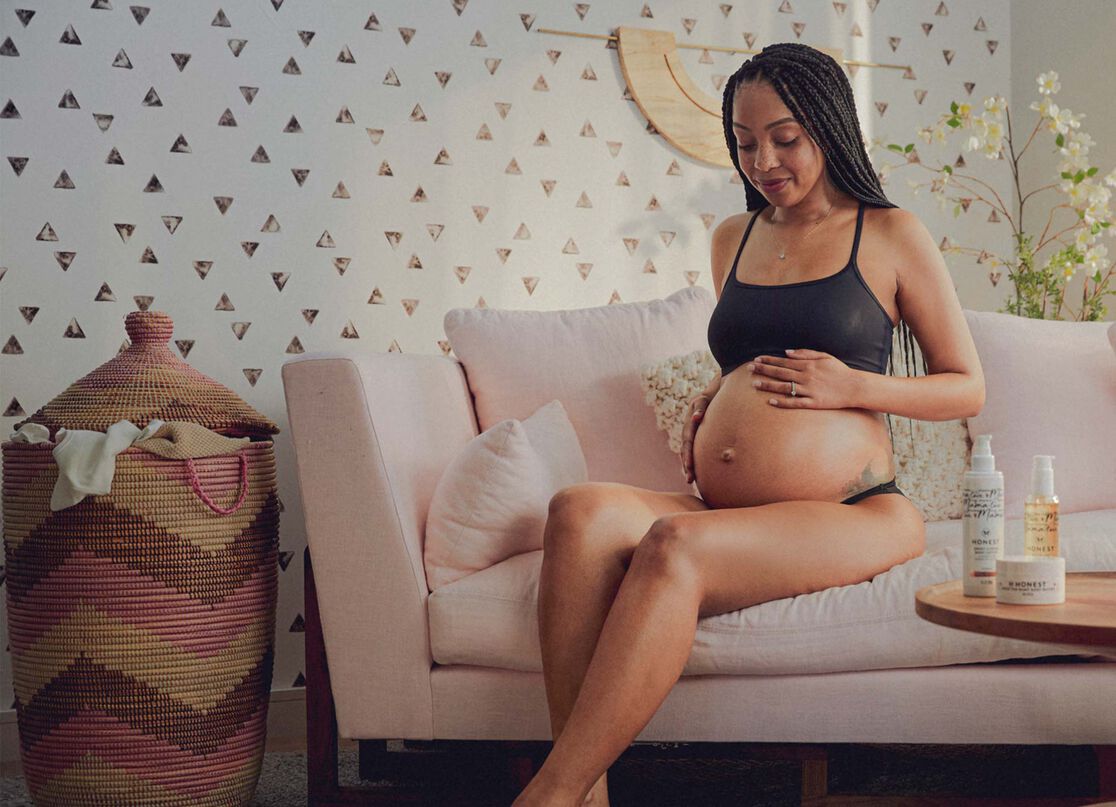The thrill of becoming a new mom includes a flurry of baby celebrations and nursery room preparation in anticipation for your littlest family member to arrive. There’s also the excitement that comes with preparing for the birth itself. It’s normal for soon-to-be moms to wonder: what do contractions feel like exactly?
Some women say a pregnancy contraction feels just like a menstrual cramp, or period pain, while others experience extreme tightening or pressure around their abdomen or cervix. Others barely feel any symptoms of discomfort at all, depending on the kind of contraction it is. Every person’s body handles pain differently and will respond to pregnancy, contractions, and delivery in their own way.
While you may want to know exactly what to expect, even in the early stages, the answers will range depending on the moms who’ve been there before and what kind of childbirth experience they had. To ease your mind and give you an idea of how to prepare for the big day, it’s good to be able to identify the feeling of a true labor contraction from what’s considered a false alarm (also referred to as a Braxton Hicks Contraction).
What Is a Contraction?
A contraction is the shortening or tightening of the uterus and can run the spectrum of pain and intensity from mild to severe. They can also begin any time during the middle of your pregnancy, all the way up to the time you deliver. This is because not all muscle contractions mean the baby is coming.
Braxton Hicks Contractions:
Braxton Hicks contractions or what are commonly referred to as “practice” or “false labor” contractions may occur when you’re mid-term. They prime your body for delivery but will not dilate the cervix. If you find yourself experiencing these contractions, they may dissipate once you switch your body’s direction. Typically, symptoms you may feel during a false labor contraction include slight pressure on the abdomen or cramping similar to menstrual pain. For many, the experience is more uncomfortable than it is painful.
These contractions can be uncomfortable but are normal. For some, they last for a few minutes, while others may experience them at different hours throughout the day. They don’t occur at regular intervals like true labor contractions do and won’t increase in intensity. Using a heating pad or gentle stretching may serve you well as a method for pain management.
Real Labor Contractions:
What do real contractions feel like when you’re in labor? Regular labor contractions are far more intense and progressively increase in frequency and severity. They usually occur every 30 seconds to a minute consistently and you may experience side effects like heavy cramps or an upset stomach. Water breaking is a tell-tale sign that childbirth is close and often accompanies labor contractions as the body transitions.
You’ll start to feel pain in the lower abdomen and/or backache that may also extend to your upper thighs. The feeling ranges from a heavy menstrual cramp to intense pelvic pressure and everywhere in between. Everyone has a different experience with true labor contractions. The good news is that the pain and discomfort is temporary as it signals your baby is on the way.
How Long Do Labor Contractions Last?
When you enter the early stages of labor, contractions may occur up to 20 minutes apart and can last 30 to 45 seconds. Once you get comfortable knowing how to count contractions, you’ll notice these increase in frequency and last longer once you reach the active labor stage. Then, as you reach the time for delivery, contractions will noticeably pick up the intensity and last about 60 to 90 seconds each and come at intervals of 2-3 minutes apart.
Once labor contractions start, it’s important to time and count them. This helps to identify when you’re in labor versus when you’re experiencing a false alarm. If you’re bleeding, the pain is getting worse, or you’re simply not sure, call your doctor.
Preparing for Contractions
Nothing can fully prepare you for what contractions will feel like because they vary from woman to woman. This unknown can feel scary and unnerving, but it’s nothing you can’t get through. To feel more in control of the situation, it’s a good idea to plan a few strategies for when contractions begin. Breathing exercises, a strong support system, and positive visualization are all beneficial during actual labor.
Regulate your breathing by inhaling and exhaling slowly. Turn to your partner, family member, or friend to be with you so you can stay focused on birthing. Center your mind on your breathing and staying as calm as possible. When contractions start, get to a place where you can sit or move around comfortably without worrying about anything else.
Also, don’t be afraid to speak up about how you feel at any point during your pregnancy. If something doesn’t feel right or if you have questions about pain or side effects, ask. You’ll be learning something new at every stage of your pregnancy, it’s normal to feel concerned or overwhelmed.
If you’ve been worried and wondering, what do contractions feel like, the best thing to remember is to stay as relaxed as possible. Trying to anticipate the pain only adds stress. Honor your body and listen to what feels right for you. Let this mindfulness guide you throughout your pregnancy and as you begin to experience contractions.
Regular contractions are the body’s natural way of preparing for birth. Although it may not be your most favorite memory, it’s also a signal that your baby is almost here. Shifting perspectives and considering them a more positive light may help you feel less scared.
We aim to provide you with the most honest and credible information possible. This article was reviewed for accuracy by The Honest Team and was written based on sources that are linked at the bottom of the article.
blog_review_statement








